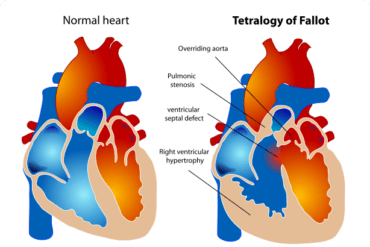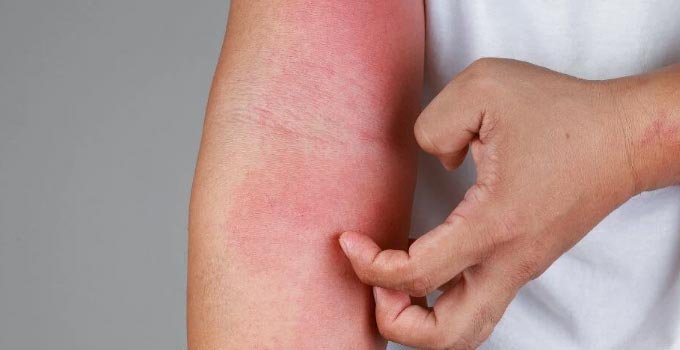Symptoms of Eczema: Understanding the Skin Condition

Table of Contents
- Common Signs and Symptoms
- Types of Eczema
- Triggers and Risk Factors
- Seeking Medical Advice
- Managing and Treating Eczema
Common Signs and Symptoms
Eczema, also known as atopic dermatitis, is a chronic skin condition that affects millions of people worldwide. Understanding its symptoms is crucial for accurate diagnosis and appropriate treatment. Here are some common signs and symptoms associated with eczema:
- Itchy Skin: Persistent itching is one of the primary symptoms of eczema, leading to intense scratching, which can exacerbate the condition.
- Rash: Eczema often leads to the development of red, inflamed patches of skin. These rashes can be localized or spread across different parts of the body.
- Dryness and Scaling: Affected skin becomes excessively dry and may start to peel or flake. Severe dryness can cause cracking, making the skin more susceptible to infections.
- Bumps and Blisters: Eczema may manifest as small, raised bumps or fluid-filled blisters, particularly during flare-ups. These lesions can be itchy, painful, or both.
- Thickened Skin: In chronic eczema cases, the skin may thicken and become rough or leathery due to constant scratching and inflammation.
- Discolored Patches: Over time, eczema patches can darken or lighten in color compared to the surrounding skin, leading to temporary or permanent discoloration.
- Weeping or Crusty Skin: In severe eczema instances, the affected skin may ooze fluid, creating a weeping or crusted appearance. This fluid can also cause further itchiness and discomfort.
- Sleep Disturbance: Itchiness and discomfort from eczema can significantly disrupt sleep patterns, leading to further health complications.
- Emotional Impact: Eczema has a profound psychological impact, often causing frustration, embarrassment, and self-consciousness, particularly when visible areas such as the face or hands are affected.
If you experience any of these signs and symptoms, it is advisable to consult a dermatologist or healthcare professional for an accurate diagnosis and personalized treatment plan. They can help manage your eczema effectively, improve your quality of life, and minimize flare-ups.
Types of Eczema
Eczema is a common skin condition that affects millions of people around the world. Although it can manifest differently in each individual, there are several types of eczema that are commonly diagnosed. Understanding the different types can help individuals identify their symptoms and seek appropriate treatment options. Here are some of the most common types of eczema:
- Atopic Dermatitis: This is the most prevalent form of eczema and often starts in childhood. It is characterized by itchy and inflamed skin, usually occurring on the face, elbows, and knees. People with atopic dermatitis may also have a personal or family history of hay fever, asthma, or other allergies.
- Contact Dermatitis: This type of eczema occurs when the skin comes into direct contact with an allergen or irritant. It can result from exposure to chemicals, certain fabrics, metals, or even specific skincare products. Contact dermatitis typically leads to red, itchy patches and may cause a burning sensation or blisters.
- Dyshidrotic Eczema: Also known as pompholyx, dyshidrotic eczema typically affects the hands and feet. It is characterized by the formation of small blisters that may be accompanied by intense itching. Stress, allergies, dampness, or sweating are some common triggers for this type of eczema.
- Nummular Eczema: Nummular eczema usually presents as circular patches of irritated and itchy skin. It can be triggered by dry skin, irritation from clothing or chemicals, or even insect bites. Unlike other forms of eczema, nummular eczema is not typically associated with allergies or asthma.
- Seborrheic Dermatitis: This type of eczema primarily affects the oily areas of the body, such as the face, scalp, and chest. It is commonly known as dandruff when it affects the scalp. Seborrheic dermatitis often causes redness, flaking, and greasy or crusty patches of skin.
If you suspect that you or a loved one may have eczema, it’s essential to consult a dermatologist for an accurate diagnosis and personalized treatment plan. While there is currently no known cure for eczema, various treatment avenues can help manage the symptoms and improve the quality of life for those affected. With proper care and precautions, individuals with eczema can minimize flare-ups and maintain healthy skin.
Triggers and Risk Factors
Eczema, also known as atopic dermatitis, is a chronic skin condition that affects millions of people worldwide. While the exact cause of eczema is unknown, several triggers and risk factors play a significant role in its development and worsening symptoms. Understanding these triggers can help individuals manage and prevent flare-ups effectively.
- Genetics: Eczema tends to run in families, suggesting a genetic component in its development. If one or both parents have eczema, their children are more likely to inherit the condition.
- Allergies: People with eczema often have other allergies, such as hay fever or asthma. Exposure to common allergens like dust mites, pollen, pet dander, or certain foods can trigger eczema symptoms.
- Environmental Factors: Certain environmental factors can exacerbate eczema symptoms. Dry weather with low humidity levels can cause the skin to become dehydrated, making it more prone to flare-ups. On the other hand, excessive heat and sweating can also trigger eczema.
- Irritants: Everyday substances like soaps, detergents, perfumes, and certain fabrics can irritate the skin and worsen eczema symptoms. It is crucial for individuals with eczema to identify and avoid these irritants to minimize flare-ups.
- Stress and Emotional Factors: Stress is known to trigger or aggravate several skin conditions, including eczema. High-stress levels can disrupt the skin’s barrier function, making it more susceptible to irritation and inflammation. Additionally, emotional factors like anxiety and depression can worsen itching and scratching, leading to further skin damage.
- Infections: Eczema-prone skin is more susceptible to infections, notably from bacteria like Staphylococcus aureus. These infections can trigger severe flare-ups and cause increased redness, swelling, and discomfort.
While eczema triggers may vary for each individual, it is crucial to identify and avoid them as much as possible. Keeping a journal to track symptoms and potential triggers can be helpful in identifying patterns and making necessary lifestyle adjustments. Additionally, maintaining a good skincare routine, using gentle products, and keeping the skin hydrated can significantly reduce eczema flare-ups.
Seeking Medical Advice
If you are experiencing symptoms that are consistent with eczema, such as itchiness, redness, or dry skin, it is important to seek appropriate medical advice. While the condition can often be managed with self-care measures, it is always recommended to consult a healthcare professional for an accurate diagnosis and personalized treatment plan. Here are some steps to consider when seeking medical advice for eczema:
- Identify a dermatologist: Start by finding a dermatologist who specializes in skin conditions, as they are well-equipped to diagnose and treat eczema. You can ask your primary care physician for a referral or check online directories to find dermatologists in your area.
- Book an appointment: Contact the dermatologist’s office to schedule an appointment. Be prepared to provide them with information about your symptoms, medical history, and any factors that may aggravate or improve your condition.
- Prepare for the appointment: Before your visit, write down any questions or concerns you may have about your symptoms or eczema in general. This will help ensure that you cover all important points during your appointment.
- Medical examination: During the appointment, the dermatologist will likely conduct a thorough physical examination of your skin and ask further questions about your symptoms, triggers, and lifestyle factors. They may also need to review your medical history to rule out any underlying conditions.
- Discussion and diagnosis: Upon evaluating your symptoms and medical history, the dermatologist will discuss their findings with you and provide a diagnosis. If eczema is confirmed, they will work with you to develop a treatment plan tailored to your individual needs.
- Treatment options: The dermatologist may recommend various treatment options such as topical creams or ointments, oral medications, light therapy, or lifestyle modifications. They will explain each option to you, taking into account your preferences and any potential side effects.
- Follow-up care: It is important to follow your dermatologist’s instructions and attend any necessary follow-up appointments. Eczema is a chronic condition, and regular check-ups can help monitor your progress and make adjustments to your treatment plan if needed.
Remember, seeking medical advice is crucial in managing eczema effectively. A dermatologist can provide you with professional guidance, support, and treatment options that can significantly improve your symptoms and overall quality of life.
Managing and Treating Eczema
Eczema is a chronic skin condition that affects millions of people worldwide. It is characterized by inflamed, itchy, and red patches of skin. Understanding and identifying the symptoms of eczema is essential for effective management and treatment. Here are some common signs to look out for:
- Dry and sensitive skin: Individuals with eczema often have dry, sensitive skin that is prone to irritation. It may feel rough and appear scaly.
- Itching: One of the hallmark symptoms of eczema is intense itching. This can lead to scratching, which further damages the skin and worsens the condition.
- Redness and inflammation: Eczema causes the affected areas to become red and inflamed. The skin may appear swollen and feel warm to the touch.
- Rashes and blisters: Eczema can result in the development of rashes, which may be accompanied by small blisters or raised bumps. These can ooze and become crusty over time.
- Thickened and leathery skin: In chronic cases, the skin affected by eczema may become thicker and leathery. This is known as lichenification and can occur due to prolonged inflammation and scratching.
While the exact cause of eczema remains unknown, it is believed to be a combination of genetic and environmental factors. Managing and treating eczema involves a multi-faceted approach to alleviate symptoms and prevent flare-ups:
- Moisturize: Keeping the skin hydrated is crucial for managing eczema. Regularly apply a fragrance-free moisturizer to prevent dryness and minimize itching.
- Avoid triggers: Identify and avoid triggers that worsen your eczema symptoms. Common triggers include certain fabrics, harsh soaps, detergents, and allergens like pet dander or pollen.
- Use gentle products: Opt for mild, unscented soaps and detergents specifically formulated for sensitive skin. Avoid abrasive scrubbing or excessive washing, as this can further irritate the skin.
- Prescription treatments: In severe cases, a dermatologist may prescribe medications such as corticosteroids, immunosuppressants, or antihistamines to manage and control eczema symptoms.
- Avoid scratching: Although it can be difficult, it is crucial to resist the urge to scratch the affected areas. Scratching can break the skin, introduce infections, and worsen the eczema symptoms.
- Seek medical advice: If your eczema symptoms are persistent, severe, or significantly impact your quality of life, it is important to consult a dermatologist. They can provide expert advice and prescribe appropriate treatments tailored to your specific condition.
Remember, effective management of eczema requires a holistic approach and patience. While there is no permanent cure, understanding the symptoms and taking proactive steps to reduce triggers and alleviate discomfort can significantly improve the quality of life for individuals with this chronic skin condition.


























